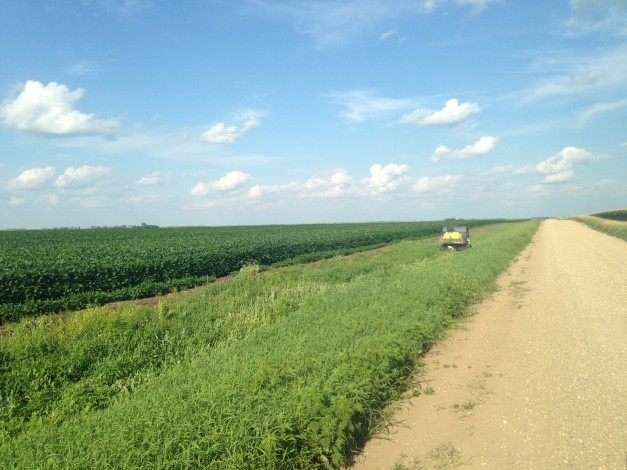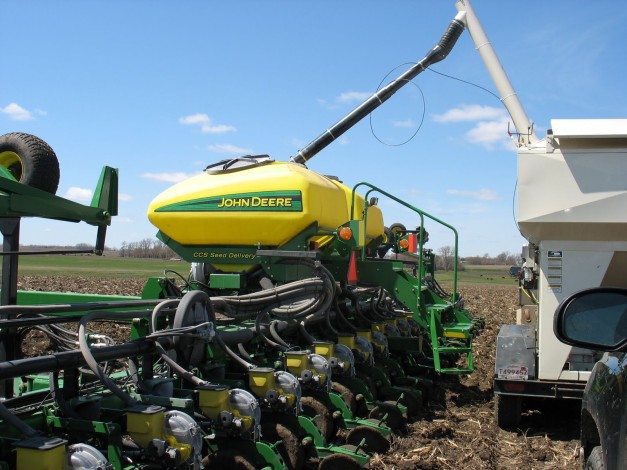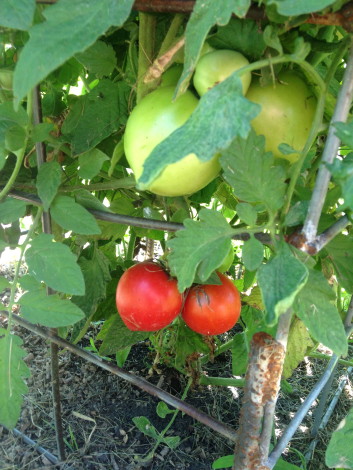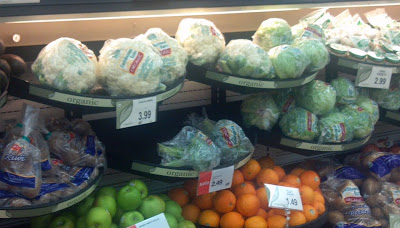Or at least for us it is. There are still farmers across the Midwest that haven’t even started their planting season- or have just begun. Here in South Dakota a few weeks ago you could see planters rolling everywhere you looked. And then as fields were planted you began seeing less and less of them.
And then you started to see sprayers sitting in fields ready to spray the crops. If you want to see a few shots of our sprayer in action I am recycling a video my husband did for South Dakota Corn.
For the next 4 months or so sprayers will be traveling up and down the fields spraying crops with pesticides.
Pesticides can be recognized as two main areas on the farm- insecticides or herbicides. Insecticides eliminate insects that could harm the crop. Herbicides are weed killers. These chemicals are a part of our crop protection program and we use them in order to have minimal damage from pests or weeds during the growing season.

We practice sustainability practices. So, we often times cut the grass ditches of our fields and bale them for hay to feed our cattle in the winter time. This is a picture of a Polaris Ranger with a small tank on it being used to spray our ditches for weeds.
The only thing that these pesticides affect are invasive weeds and pests to the crop. A lot like what you might see yourself spraying on your garden to prevent bugs on your tomatoes. Or the round up you might use to kill certain weeds along your landscape or driveway.
Using pesticides on crops may sound a bit scary, but the truth is the government regulates their use by state and federal laws to ensure safety. And with today’s technology we are able to be very precise when applying these products.
In some cases people prefer not to buy foods that have been sprayed with chemicals. So, they make the decision to purchase organically. However, organically grown produce still uses pesticides derived from natural sources.
The use of pesticides on our crops has helped all farmers improve greatly over time. We grow more on less and we are farming more efficiently each and every day. These applications also continue to help us be more successful in growing an abundant crop in order to continue to feed our growing world.




Leave a Reply